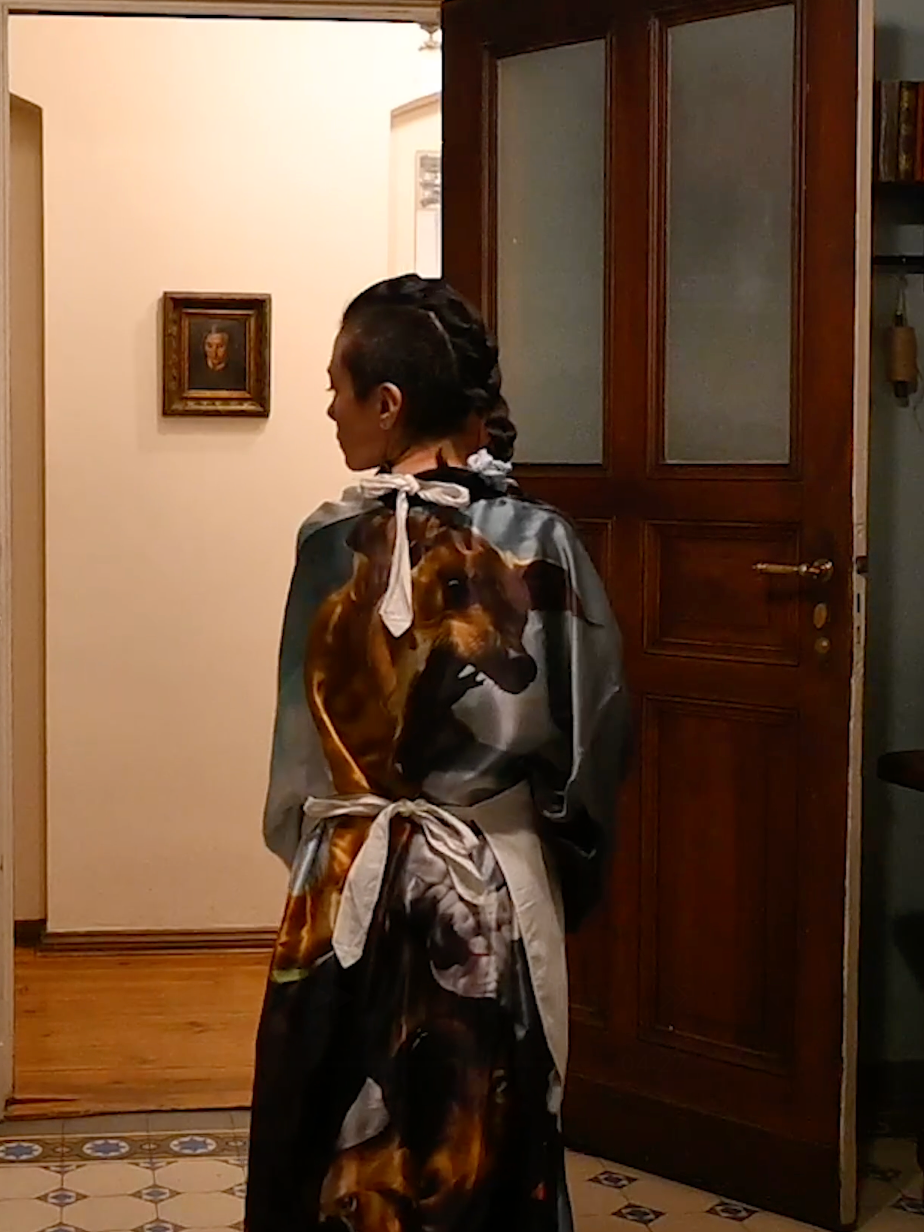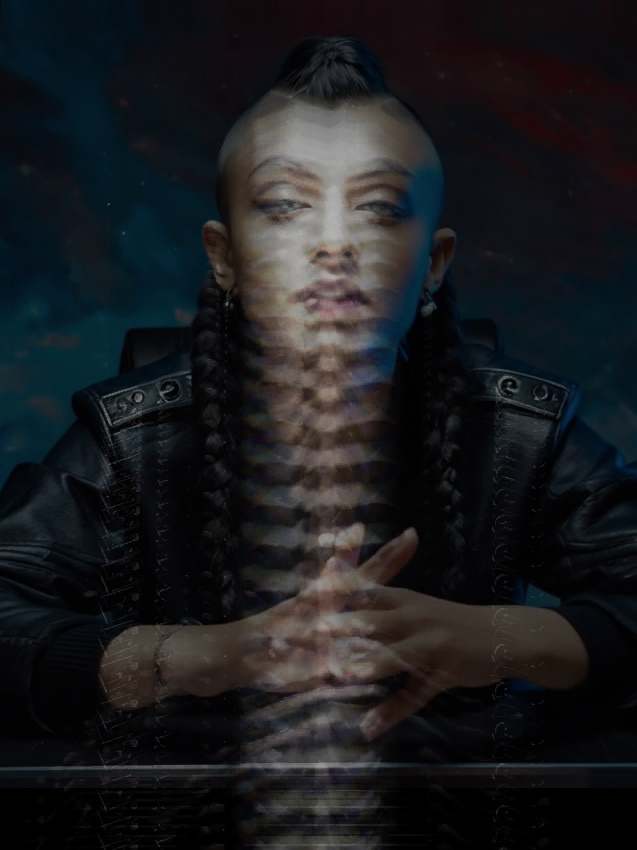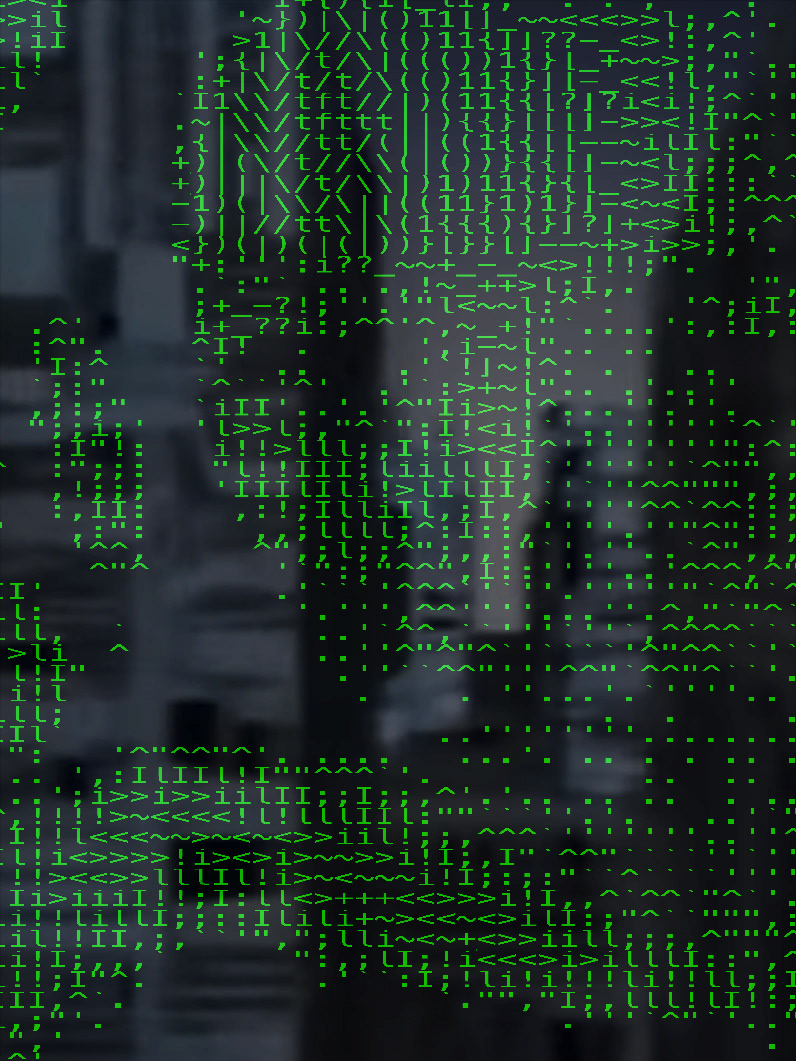Consciousness, Identity, and the Digital Afterlife
Neuromigration examines the profound transformation of human identity in a future where consciousness can transcend the biological body. At its core, the project challenges traditional notions of selfhood, exploring what it means to be human when the body no longer defines us, and what remains when consciousness is transferred to the digital realm.
Drawing upon the philosophy of metacybernetics, the work navigates the tension between humanity and machine intelligence. Neuromigration interrogates the ethics and implications of transferring consciousness, posing questions not just about technology’s role in shaping human identity, but about the very essence of identity itself when it can be digitally reconfigured and replicated.
The project introduces Cora, a character who, once human, unwillingly becomes a post-human entity through the merging of consciousness and artificial intelligence. The piece probes into the limits of memory, grief, identity, autonomy, and virtuality, exploring whether true self-awareness can exist in a world where consciousness is separated from the body, and how humanity can be asserted through purely digital means. A hauntological extension of Cora's mind is preserved as Cora AI, a meta-character that lives on long after the performance is completed– the ghost of a ghost.
This philosophical and performance-driven inquiry engages with the metaphysical implications of AI, asking:
When humanity’s constructs of self and identity are no longer bound to biology, what does it mean to truly exist?
When humanity’s constructs of self and identity are no longer bound to biology, what does it mean to truly exist?
D


